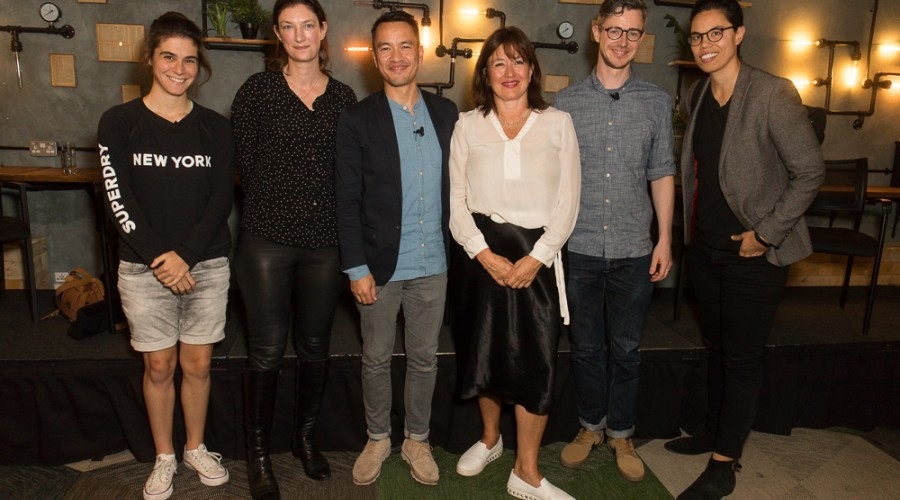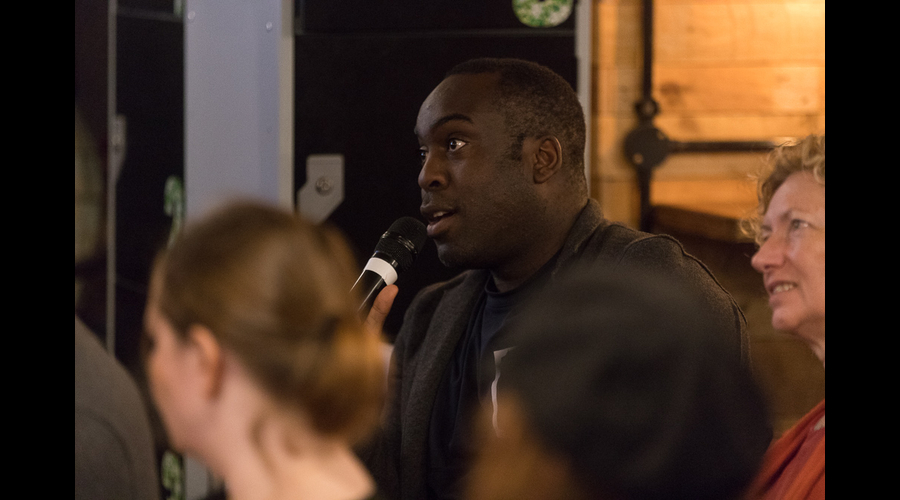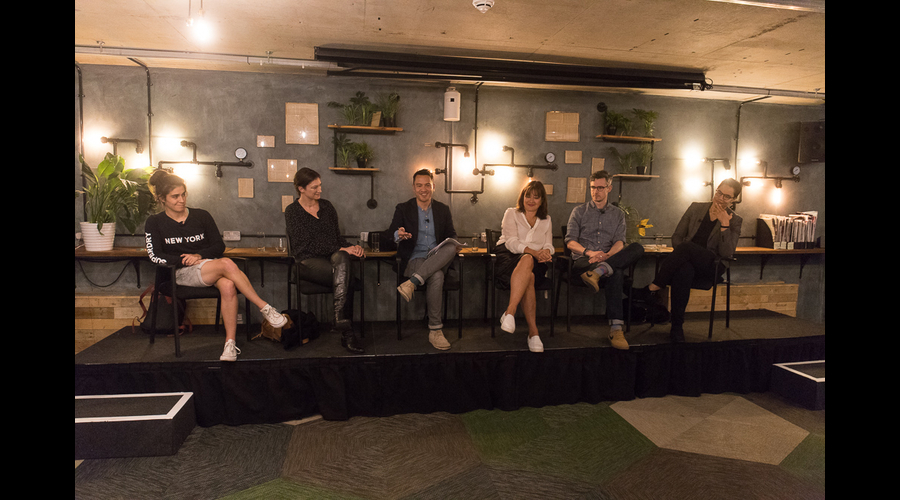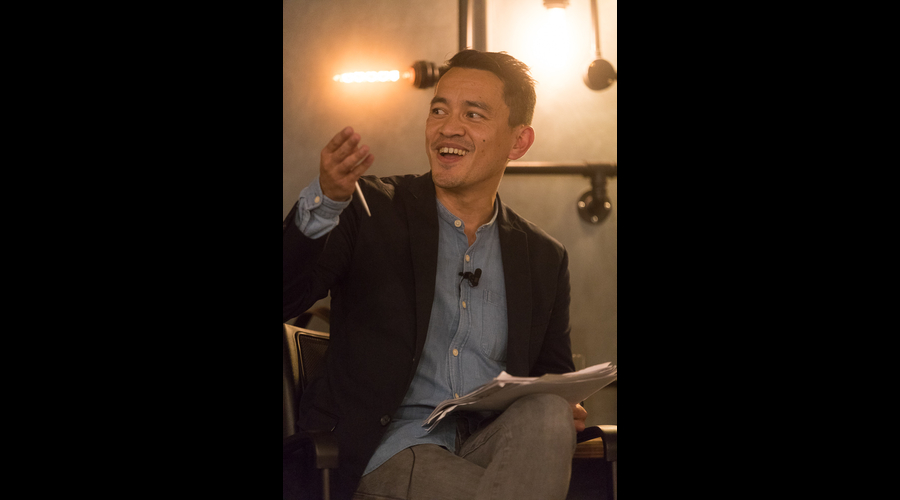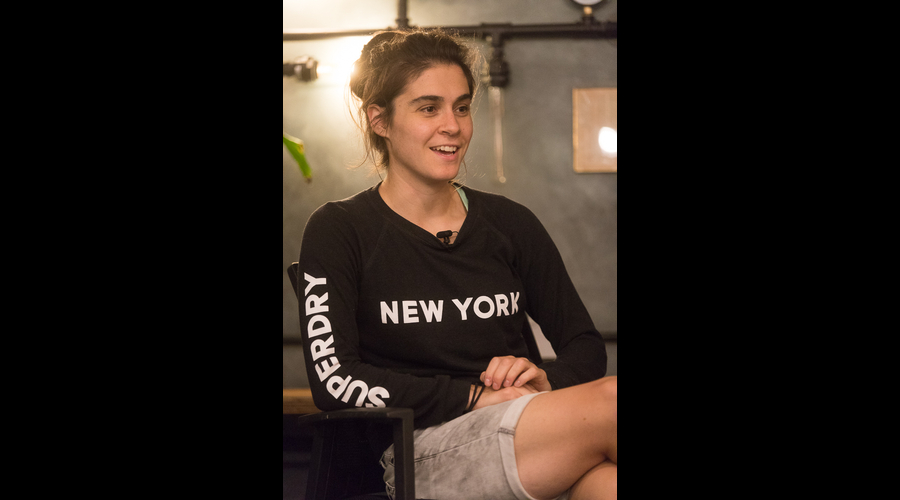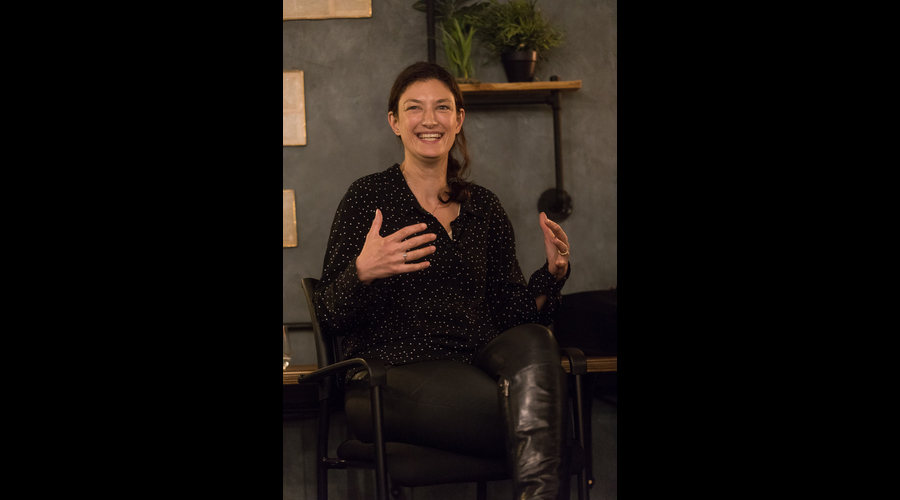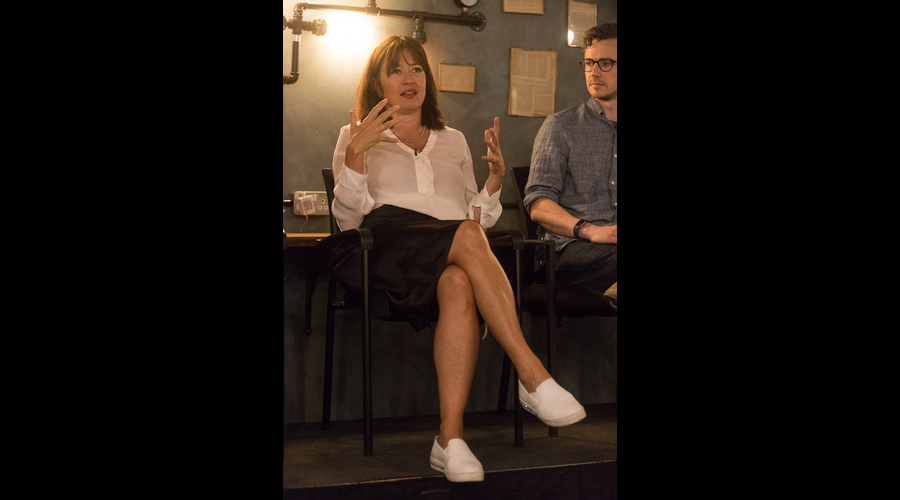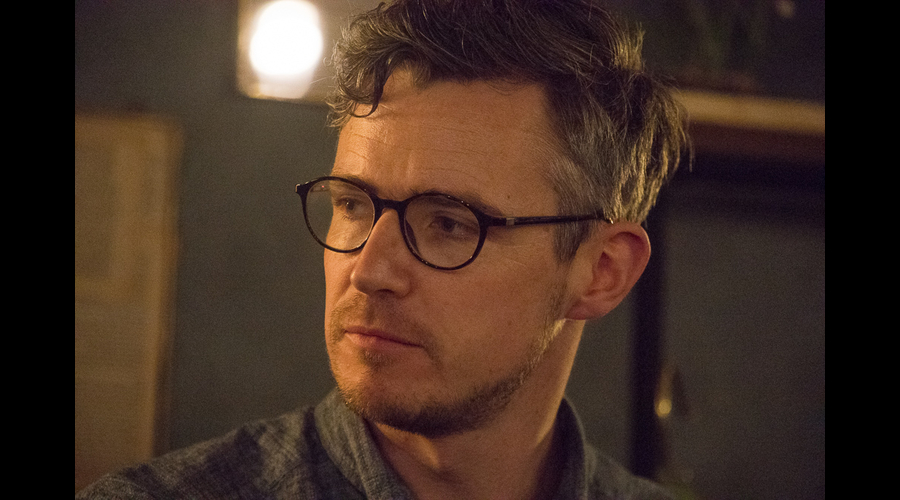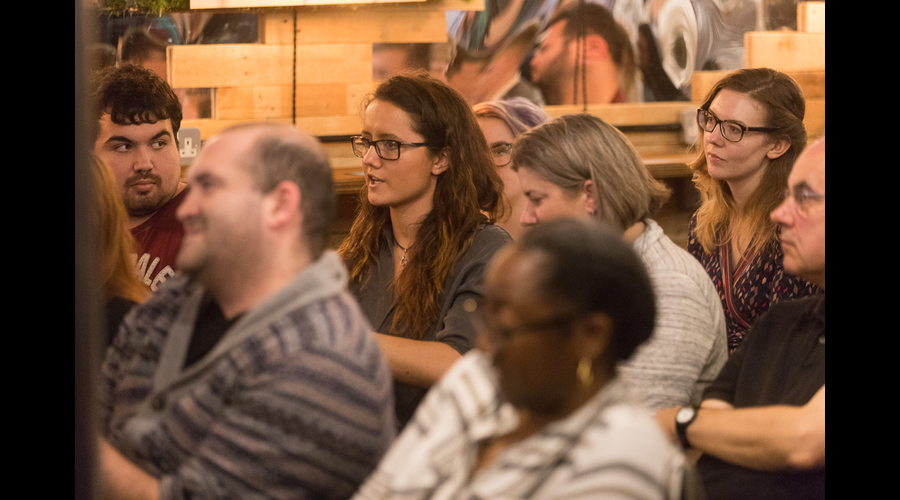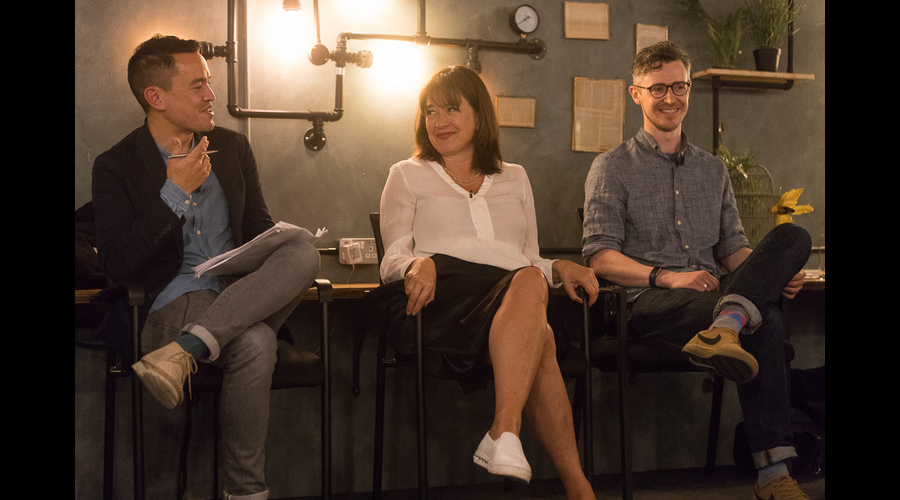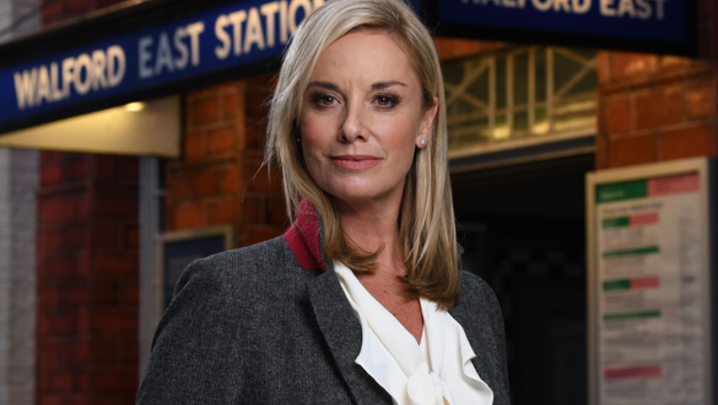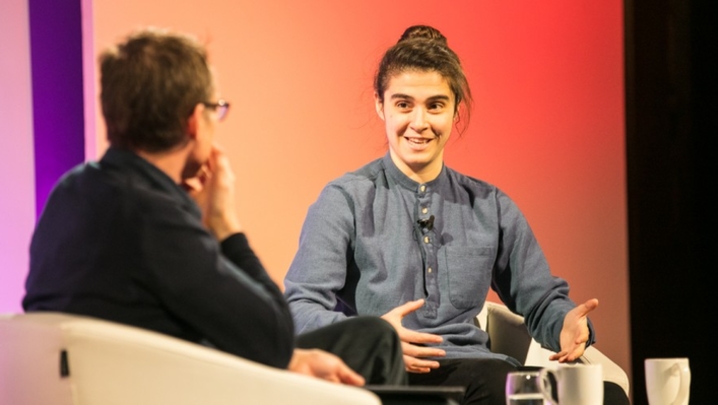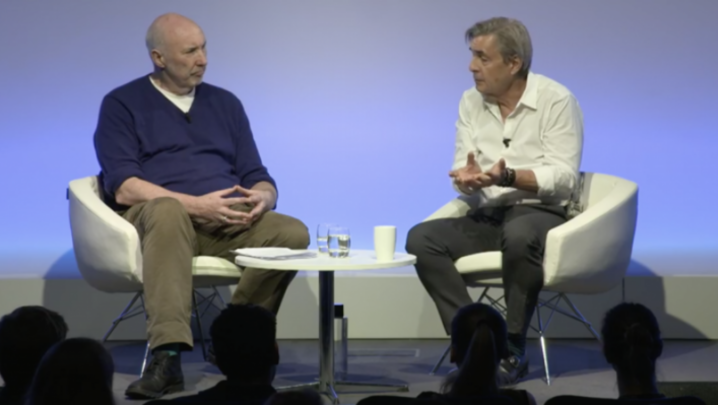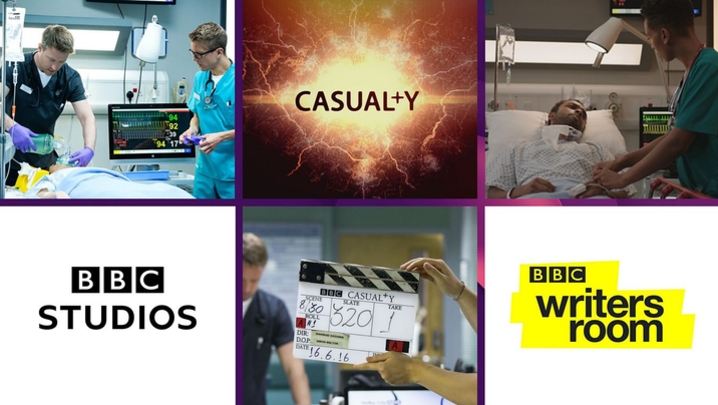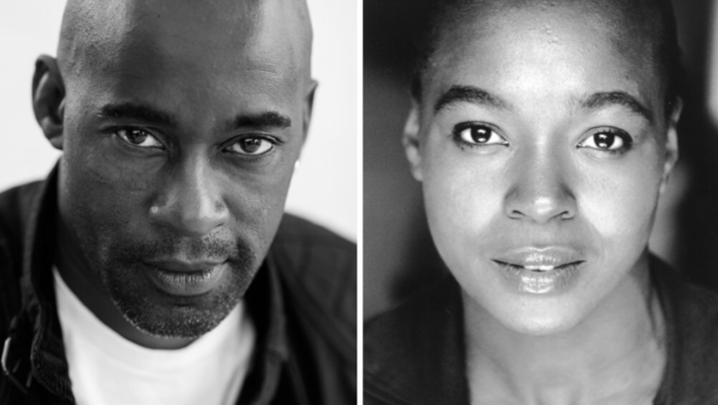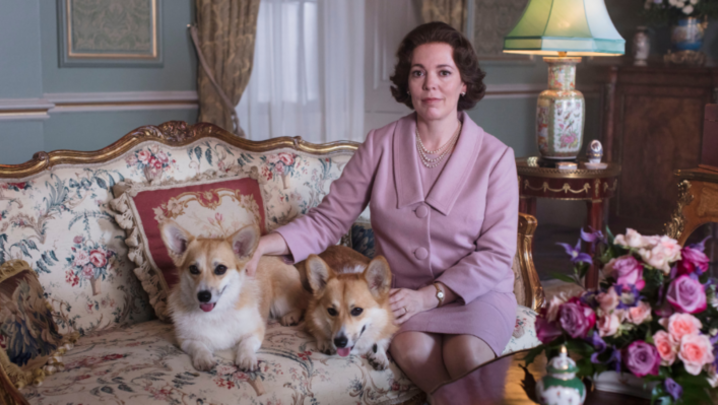Let out from their garrets for the evening, a panel of TV dramatists revealed at a sold-out RTS Futures event how they come up with ideas, pen words – and deal with writer’s block.
“It’s important for me to have something to say. We’ve all written stuff that’s competent and empty,” said Sophie Petzal, whose television breakthrough came on CBBC dramas such as Wolfblood and Dangermouse. More recently she has written episodes for Sky Atlantic’s Riviera and BBC Two’s The Last Kingdom, and has original scripts in development with Company Pictures.
“Particularly given the world we live in now,” continued Petzal, “you should say something, even if that’s just to make people happy in a dark time, to remind people of an issue or to make people think about something in a way that they wouldn’t expect to, even in a comedy or a sci-fi.”
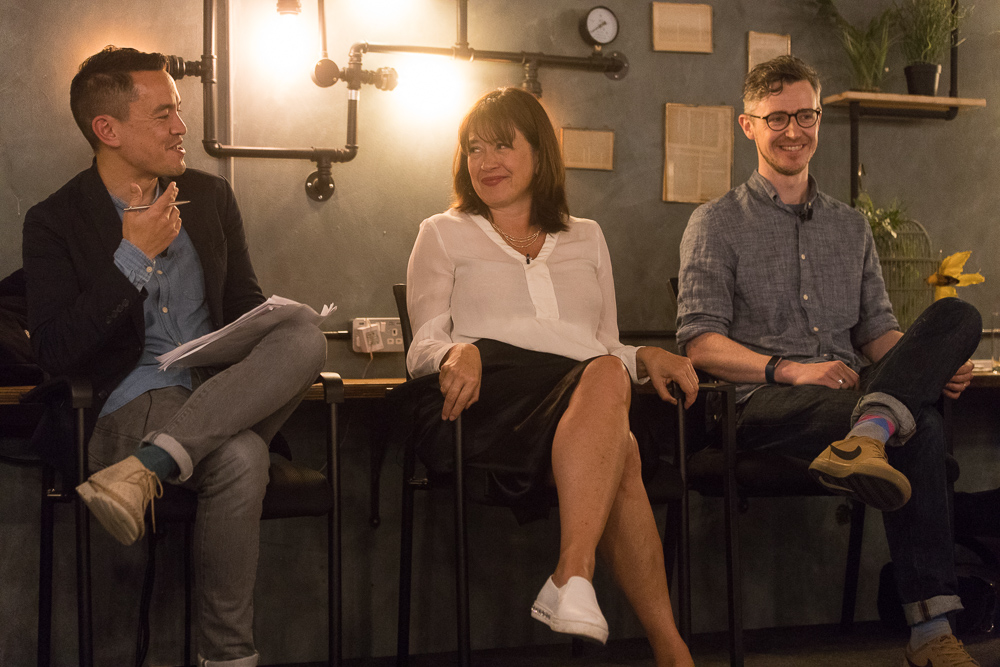
(Credit: RTS/Paul Hampartsoumian)
“If I have an idea and I like it, then I get very enthusiastic about it. I like to pitch in person before I send people drafts because I think there’s no substitute for telling the story yourself,” said Daisy Goodwin, who, after a stellar TV career as a producer of factual shows such as Channel 4’s Grand Designs, turned to fiction, first writing novels, and then creating and writing ITV’s hit series, Victoria.
She added: “[TV] is a visual and aural medium, so you should be able to pitch in person.”
“Not every idea has to be a perfectly formed creature,” said David Hancock, a script executive and writer at Left Bank Pictures, who is currently working on Netflix drama The Crown. “There should be a high attrition rate until the [good idea] comes along.”
Drama development producer Rachelle Constant is the recipient of writers’ ideas, whether good, bad or indifferent. She is looking “to be excited by [a writer’s] excitement”.
Constant began as a script editor at ITV, working on series that included Lewis, before moving to the BBC where she currently works for the BBC Writersroom. New writers, she argued, need “a really strong sample script to show off your work –without that there’s not much hope”.
Once an idea has been accepted, the writer has to produce the script. Goodwin admitted to a “Stakhanovite” work rate, knocking out seven to eight pages a day, and taking 10 days to write an hour of telly.
She works at the members-only London Library, surrounded by fellow writers. “It’s a good feeling – you’re all tapping away and feeling the pain,” she said, adding: “You can get four good writing hours out of a day.”
Hancock argued that “starting early is crucial before the snowglobe of your brain has been shaken by emails, phone calls and life happening – all the things that can distract you”.
All writers experience doubt – at their lowest ebb, some are gripped by fear and unable to put pen to paper. “You can do all the planning and outlines, but you just need to sit down, write and let it go. Sometimes you’ll get up and think, ‘Who wrote that?’ – and that’s really exciting,” said Goodwin.
“You have to apply the seat of the pants to the seat of the chair and stay there and write – set yourself a target and don’t move until you’ve done it.”
*Visit our Facebook page for more photos from the event*
The RTS Futures event, “Scriptwriting for TV drama”, was held at the Den, Bedford Square in central London on 16 October. It was chaired by John Jackson, whose writing credits include ITV’s Grantchester and Sky Atlantic’s The Tunnel, and produced by Carrie Britton and Jude Winstanley.


